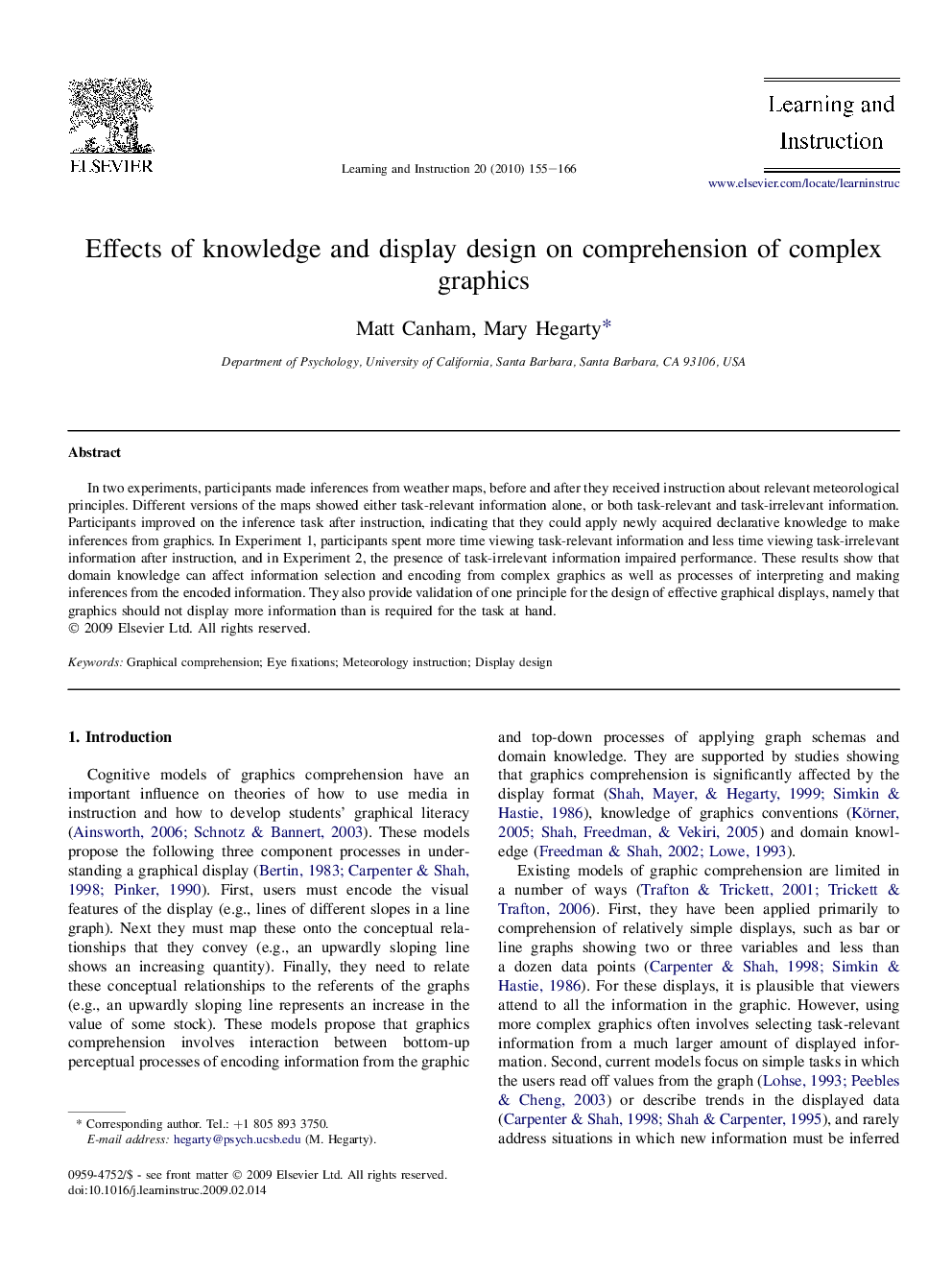| Article ID | Journal | Published Year | Pages | File Type |
|---|---|---|---|---|
| 365838 | Learning and Instruction | 2010 | 12 Pages |
In two experiments, participants made inferences from weather maps, before and after they received instruction about relevant meteorological principles. Different versions of the maps showed either task-relevant information alone, or both task-relevant and task-irrelevant information. Participants improved on the inference task after instruction, indicating that they could apply newly acquired declarative knowledge to make inferences from graphics. In Experiment 1, participants spent more time viewing task-relevant information and less time viewing task-irrelevant information after instruction, and in Experiment 2, the presence of task-irrelevant information impaired performance. These results show that domain knowledge can affect information selection and encoding from complex graphics as well as processes of interpreting and making inferences from the encoded information. They also provide validation of one principle for the design of effective graphical displays, namely that graphics should not display more information than is required for the task at hand.
